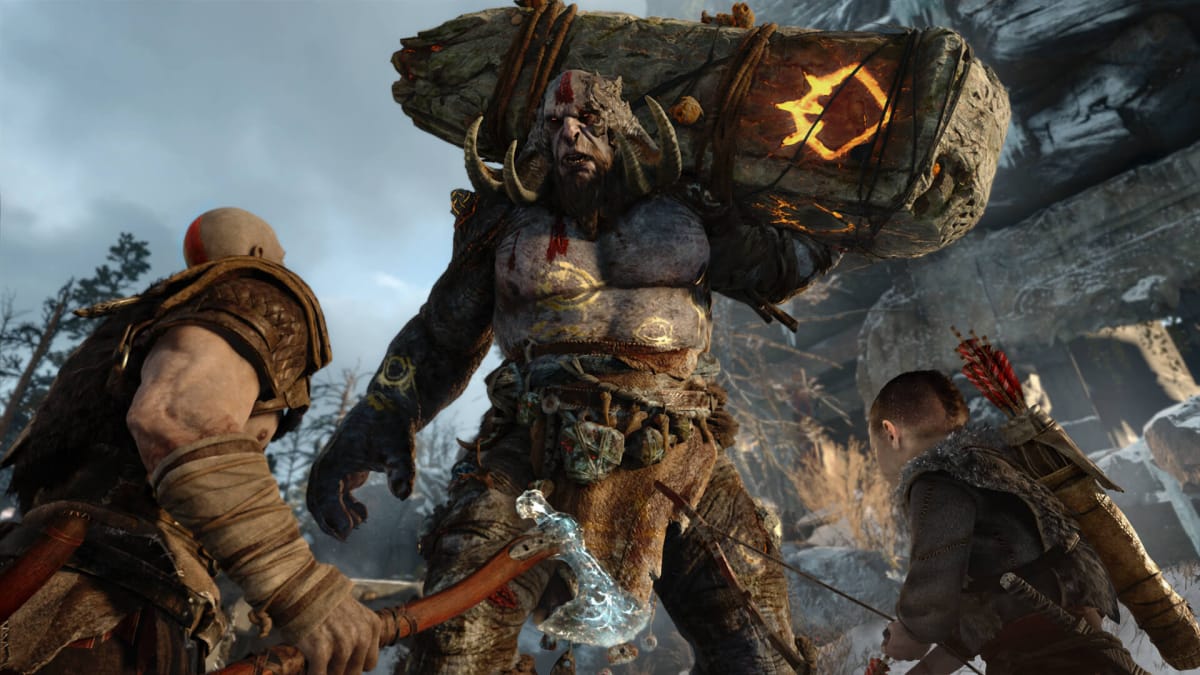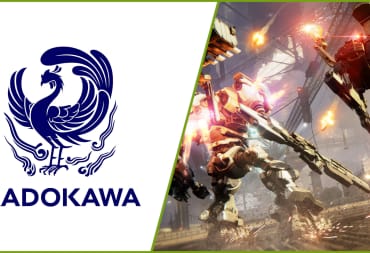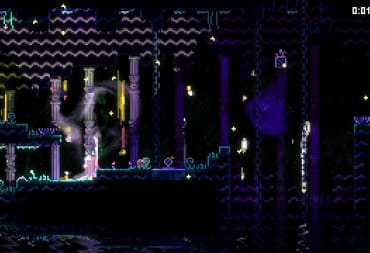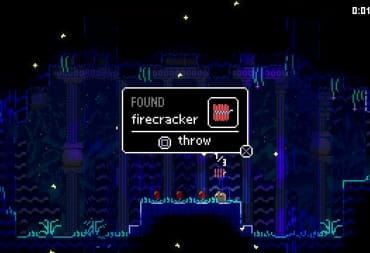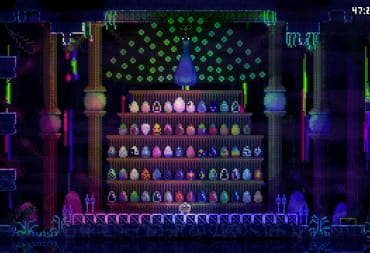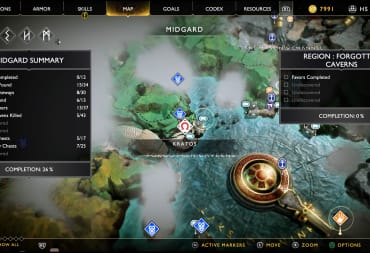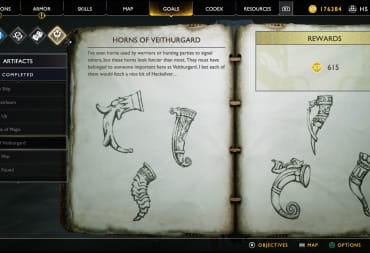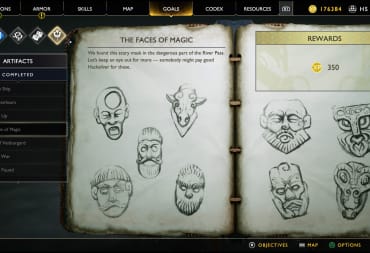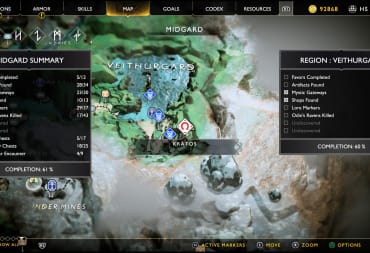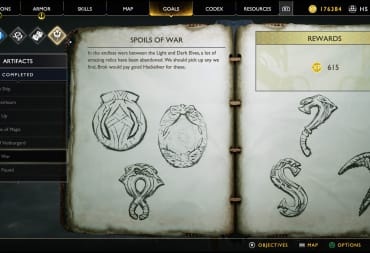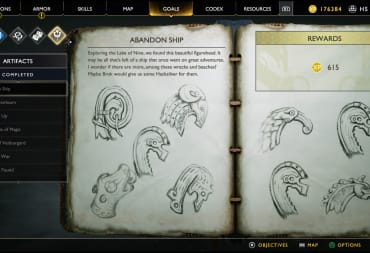God of War (2018) is a thoughtful game in a narratively blunt series. Despite how earlier games in Sony Santa Monica’s god-slaying epic action-adventure series have minimal narrative depth, God of War (2018) is uncharacteristically introspective for a God of War game. The title is far more emotionally mature than the previous entries in the series and has thematic intelligence. Where the older game’s prioritized epic combat encounters and large-scale boss fights, the most recent game grapples with themes of guilt, self-loathing, and redemption in an incredibly nuanced and relatable way. It strikes gold when it comes to its deep narrative, and unlike earlier entries, the quality of God of War (2018)’s story matches the gameplay.
God of War (2018)’s story has emotional heft. Beyond being a well-written and emotionally impactful story about a grief and guilt-stricken Kratos and his troubled relationship with his young son Atreus, the game improved the stories of all the past narratively lackluster God of War games. Framing the narratives of the previous game’s in proper context, God of War (2018) effectively utilizes the nuances of its own narrative to deliver meaning in games that were previously unmeaningful from a storytelling perspective. It retroactively made the old games interesting.
Warning: This piece contains spoilers for the God of War series.
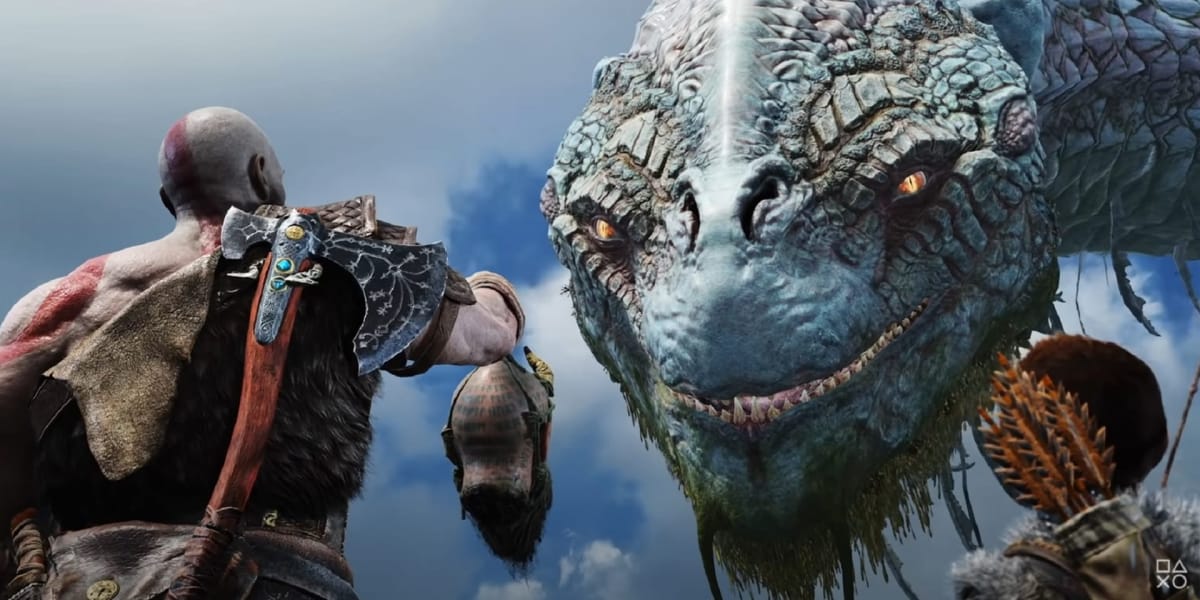
Adding Nuance to a Simplistic Story
This can easily be understood when reevaluating the older games. God of War (2005), God Of War 2 (2007), and God of War 3 (2010) were simple violent power fantasies where you play as a jaded god trying to enact vengeance on the gods of Olympus. Starring Kratos, the games’ narratives were just used as justifications to murder the entire Greek Pantheon in endlessly creative ways. Whether gouging Poseidon’s eyes out or repeatedly slamming a metal door into Theseus’ head, the stories of the older games were just vehicles for creative boss battles, stunning action set pieces, and awkward sex scenes. Sure, God of War 3 admittedly became a bit more self-aware (Kratos’ thirst for revenge has consequences that result in the destruction of Greece), but on the whole, the older titles aren't very introspective. They are far from thoughtful experiences.
God of War (2018) recontextualizes the events of those games. With its narrative, Kratos is a wizened god who views his past events with regret. Amid his journey to scatter the ashes of his deceased wife Faye and battling Norse mythological figures, Kratos feels downright guilty over his actions in the previous games. After all, Kratos is a father now, and his past is nothing to be proud of: He caused the Greek apocalypse, murdered his own father Zeus, and boinked Aphrodite amid his siege on Mount Olympus, which is hardly a good example he would be setting for his son. While he had no qualms destroying Greece and the Gods of Olympus during the older games, God of War (2018)’s incarnation of Kratos has smartened up now that he is a father and has some more years under his belt. He now understands that his old bloodlust is worthy of being ashamed of. Hell, Kratos feels so much guilt over his past misdeeds that moved to a new realm, made a new life for himself, and literally buried his god-slaying Chaos Blades, as if he could hide from his shame. He fears that any evidence of his shameful past will cause him to slide back into his old ways and potentially ruin his relationship with Atreus, and with this, Kratos’ past actions in the older games, at last, have narrative and thematic weight. They have a purpose.
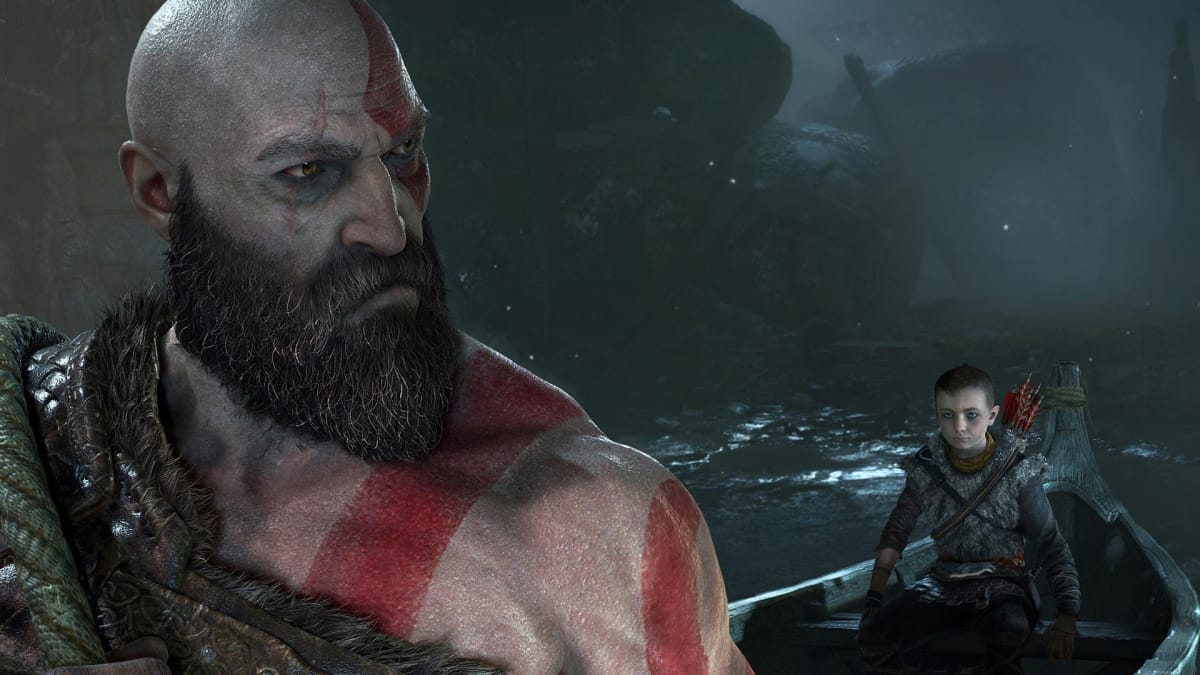
New Realm, New Conflict
This becomes clear when God of War (2018) introduces the conflict between the Norse god Baldur and his mother the goddess Freya. The relationship between the two is strenuous, and through Baldur desiring to murder his mother, Kratos notices many unfortunate parallels between their godly squabble and his vengeance-fueled past. He sees echoes of his own deicidal patricide (i.e. murdering Zeus). As a result, Kratos is visibly uncomfortable whenever Baldur expresses his desire for vengeance against his own mother. Through Baldur, Kratos is reminded of his various atrocities in past games, and he doesn’t enjoy it one bit.
But Kratos must overcome his past demons. In fact, he must learn to embrace them. During the events of the game (whether it be from Atreus falling ill, fulfilling his deceased wife’s last wish, or fighting Baldur), Kratos needs to accept the fact that he made literal cataclysmic mistakes in order to move forward. He needs to dig up his Chaos Blades and live with his shame. He needs to tell Atreus the truth in order to win the boy’s trust. He must learn to accept his part in the events of past games.
Kratos purveys vengeance as a cycle when it comes to gods. Whether Greek or Norse, it’s in the nature of gods to slay their parents and for their eventual children to slay them in turn. This was established in the older God of War games when Kratos eviscerated the gods of Olympus in gruesome fashion and is a plot point given new depth in God of War (2018). With the spat between Baldur and Freya, he sees the cycle playing out again, albeit with a different family of gods, and for Kratos, the only way to break the cycle is to eliminate Baldur. He must alter the narrative.
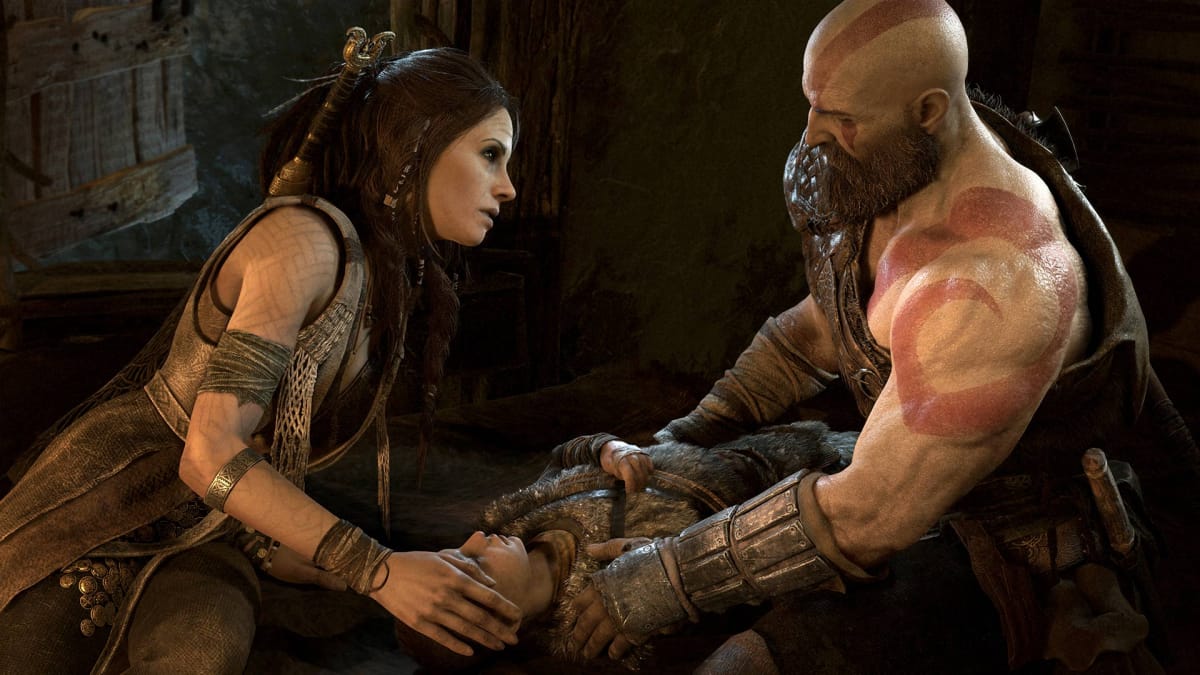
The Story of a Troubled Father and Son
Kratos’ parental relationship with Atreus reflects this. The events of the past games are a burden for Kratos' and Atreus' familial bond, and at the start of the game, the two are at odds with one another. Kratos is very curt with Atreus and is very unforgiving of his mistakes. In fact, he even criticizes Atreus by saying: "Don't be sorry. Be better." Which is a line of advice that Kratos doesn't follow. After all, Kratos as a character made so many mistakes in past games, feels burdened by guilt, and doesn’t want Atreus to repeat after him. At God of War (2018)’s start, Kratos avoids informing Atreus’ of his godly lineage and his bloody history as a god butcherer, and their relationship suffers as a result. Kratos is very harsh with Atreus and doesn’t even bother to give a reason why. While he has a noble rationale for keeping secrets (he doesn’t want to tell Atreus that he is a bad person after all), the two’s relationship is troubled. It is weighed down by Kratos’ past.
Accepting the past, however, is the only option. In order to have an optimal relationship with his son, Kratos needs to reconcile the mistakes he made in previous games. He must stop being sorry and be better. He needs to be honest with Atreus.
Kratos eventually does overcome his guilt. By the end of the game, he confides in Atreus and describes his past misdeeds, and their relationship is all the better for it. Now that they can trust each other, the two work as a cohesive unit in both social and combat situations. In fact, they are so in harmony with one another that they eliminated the once unkillable Baldur, and they end God of War (2018) in complimentary stature. Kratos and Atreus finally have a working family dynamic.
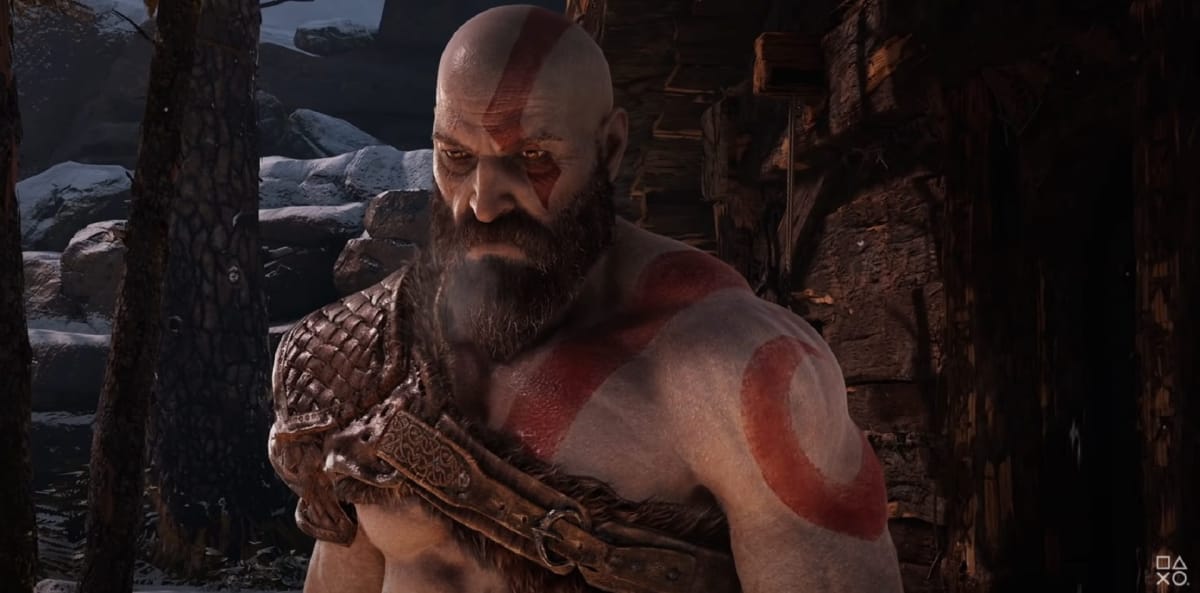
What Will God of War Ragnarok Bring?
However, the future may throw their father-son relationship into disarray. At the end of God of War (2018), the player learns that Atreus is prophecized to take the identity of Loki and slay Kratos, and seeing as God of War Ragnarok will be the finale of the Norse saga, we will see if this plot point will come to pass.
Regardless, the events of God of War Ragnorok will be a culmination of all the past games. It’s a direct sequel to God of War (2018), and due to how that incorporated the events of the older games into its narrative, God of War Ragnarok will carry the entire franchises’ story, characters, and thematic thesis to its inevitable conclusion. It will be epic both in terms of gameplay scale and being a resonant narrative, and with the game being about Ragnarok, a word that means "doom of the gods," we shall see if that means Kratos' doom as well. Seeing as God of War is now a narrative-driven experience rather than a mere power fantasy, every potential narrative twist is on the table. There is a legitimate possibility that he won't survive the events of God of War Ragnarok, and from a storytelling perspective, this unknowable outcome has us dangling by a thread.
Have a tip, or want to point out something we missed? Leave a Comment or e-mail us at tips@techraptor.net
